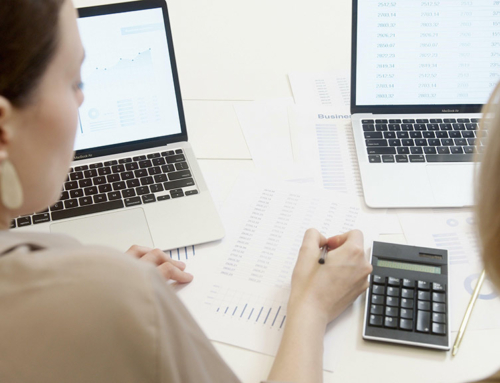You’ve probably heard that the Federal Reserve plans to hike interest rates this year for the first time since 2018. Wondering if and when this might affect your finances? Here’s what you need to know.
What sort of rate hikes are expected?
Federal Reserve Chair Jerome Powell told the Senate Banking Committee on March 2 that he expects the Fed to raise interest rates one quarter of a percentage point. That’s a more conservative increase than was originally expected, but the Fed has indicated that more caution is needed in light of the Russian invasion of Ukraine, which has brought new uncertainty to an already uncertain economic climate.
However, Chairman Powell did note that they are prepared to raise rates by more than that if inflation continues to come in hot—a risk that seems very real due to surging energy and commodity prices.
Why does the Fed raise interest rates, anyway?
The Federal Reserve has two primary objectives when it comes to the economy: to see that employment rates are as high as possible and that prices are stable.
The Fed targets a neutral interest rate, one which employment is maximized without sparking high levels inflation. The actual rate is rather objective, but historically, the Fed targets interest rates in the 2-5% range.
The effect of rising interest rates
Adjusting interest rates is the Federal Reserve’s main tool when it comes to combating high inflation. Via the central bank, it sets short-term borrowing rates for commercial banks—meaning the rates at which banks, savings and loans, and credit unions charge each other for overnight loans. This is known as the federal funds rate.
On the economy:
Here’s how raising the fed funds rate might mitigate inflation, which is at the highest it’s been in 40 years:
First, it essentially shrinks the supply of money that is out there for people and businesses to spend by making money more expensive.
Second, less money to spend has a cooling effect on consumer demand (which has been sky-high during the pandemic, leading to supply problems and price increases). This could eventually also help soothe that supply chain strain.
On the other hand, some economists are concerned that if the Fed raises interest rates so quickly that demand decreases too much, it will have an overcorrecting effect—that of slowing down the economy to the point of recession.
On consumer finances:
Naturally, consumers will feel the economic effects in their own bank accounts, although it can take up to a year. That’s because those higher rates don’t stay with the commercial banks. They get passed along to consumers and businesses, making borrowing more expensive, whether that’s mortgage rates, credit cards, or car loans.
Often those higher interest rates will hit consumers before prices decrease, meaning we’ll feel the pinch of higher gas prices and grocery bills at the same time borrowing becomes more expensive.
On investing:
You might have noticed that talk of rising interest rates isn’t well received by the stock market. That’s because as the cost of borrowing goes up, companies have reduced financial leverage needed to grow, which could affect revenues and profitability—two things that greatly influence stock prices. Lower expectations can lead to investors selling stocks in anticipation of rate increases.
Some stock market sectors, like financial institutions, tend to perform better than others when interest rates climb.
When it comes to bonds, prices of existing bonds fall immediately in response to rate hikes, so that can impact those investors who have more exposure to bonds or who rely on bonds for income.
Wondering how your personal portfolio will fare in light of all that’s going on in the economy right now? We can help you make sense of it all, and make sure you have a plan in place that will lead to the best possible outcomes. Talk to us today.





